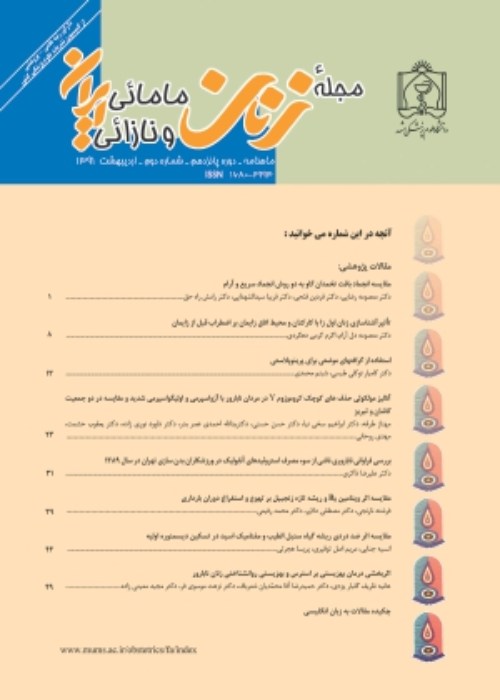Comparison of maternal and fetal complications in women with various phenotypes of polycystic ovary syndrome
The prevalence of maternal and fetal complications in pregnant women with polycystic ovary syndrome (PCOS) is higher than non-infected women. This study was performed with aim to evaluate the prevalence of pregnancy complications in women with different phenotypes of polycystic ovary syndrome based on the NIH in addition to Rotterdam criteria.
In this retrospective study, the pregnancy records of 266 PCOS women were investigated based on their medical file in 2014-2016. These women based on PCOS related clinical symptoms were divided to two groups: The first group, or group A (severe phenotype), included women who had all three clinical signs of oligo-anovulation, hyper-androgenism, and ovarian cysts, or only two signs of oligo-ovulation and hyper-androgenism when the disease was diagnosed. Group B included people who had only hyper-androgenism with ovarian cysts (PCOM) or oligovulation with ovarian cysts (mild phenotype).The maternal and fetal complications during pregnancy was retrospectively evaluated between two groups based on the participants’ medical records information. Data were analyzed by SPSS software (version 17) and Mann-Whitney, Chi-square, T test and Logistic Regression. P<0.05 was considered statistically significant.
Among maternal and fetal complications, low birth weight was significantly different between the two groups. After adjusting with age, body mass index and number of pregnancies, the odds ratio of low birth weight baby in group A compared to group B was 2.6 (95% CI; 1.5-2.9, p <0.01). The study found no statistically significant difference in gestational diabetes, preterm delivery, or the chance of spontaneous abortion between different PCOS phenotypes.
The chance of LBW in women with sever form of PCOS (group A) is higher than women with moderate form of the disease (group B). In clinical practice, it is recommended that the PCOS phenotype should be considered as an affecting factor on fetal outcomes in pregnancy.
- حق عضویت دریافتی صرف حمایت از نشریات عضو و نگهداری، تکمیل و توسعه مگیران میشود.
- پرداخت حق اشتراک و دانلود مقالات اجازه بازنشر آن در سایر رسانههای چاپی و دیجیتال را به کاربر نمیدهد.





